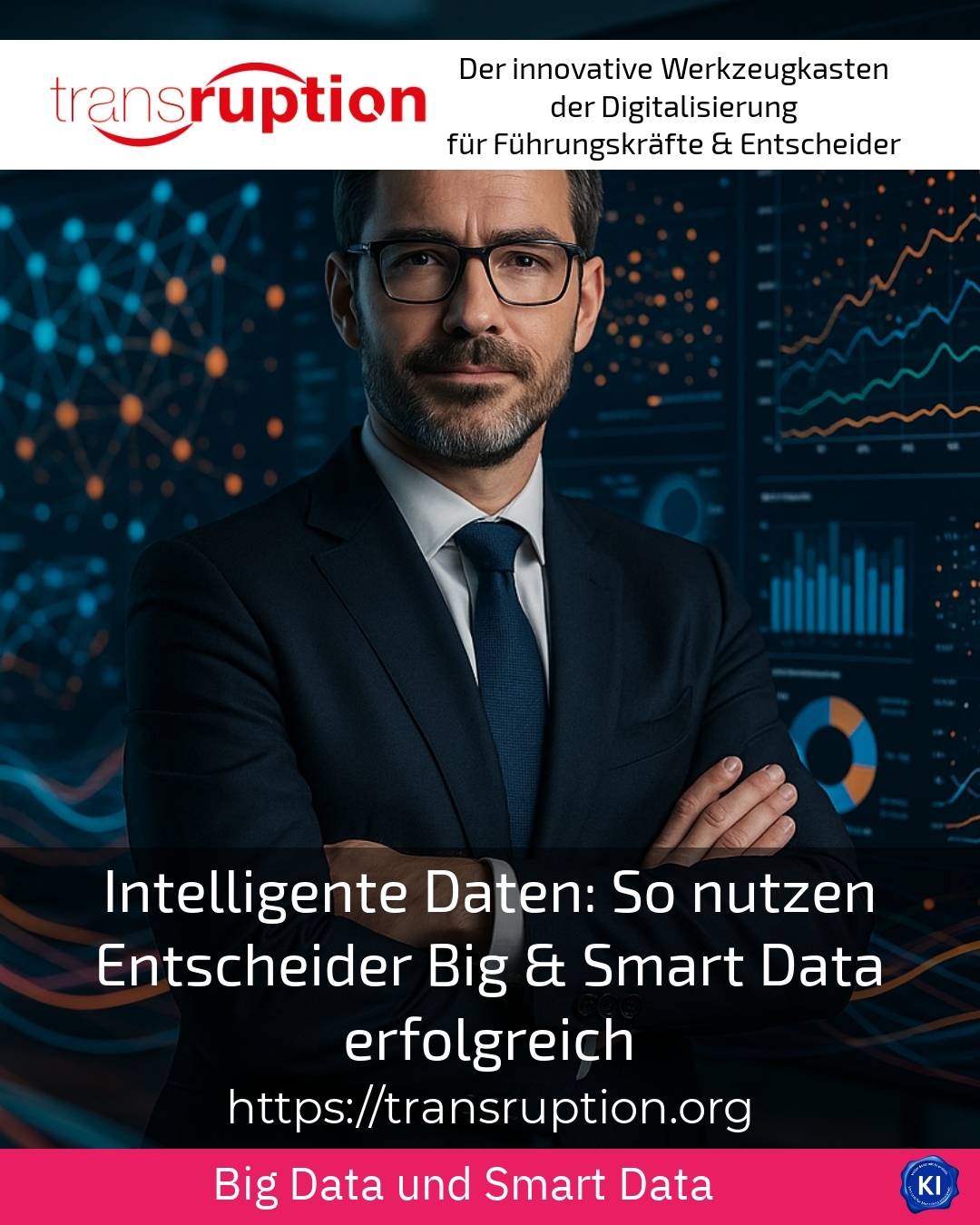In today's digital world, intelligent data plays a crucial role in corporate decision-making. This data enables well-founded decisions to be made and business processes to be optimised. Smart data is often based on big data, which is transformed into valuable insights through targeted analysis and processing. Companies use these insights to increase their competitiveness and achieve sustainable benefits.
What is intelligent data?
Smart data are the results of targeted analyses of large amounts of data. It is obtained by using techniques such as data mining, machine learning and artificial intelligence to extract relevant information and utilise it for specific applications [4]. In contrast to big data, which concentrates on processing large data sets, smart data focuses on targeted use and analysis to achieve specific goals.
Areas of application for intelligent data
Smart data is used in various sectors, such as healthcare, industry and the financial sector. In healthcare, it can be used to develop personalised therapies by bringing together patient data in the right context [5]. In industry, it supports the optimisation of processes and the prediction of trends in order to increase efficiency [4].
BEST PRACTICE at the customer (name hidden due to NDA contract)An energy supplier uses smart data to analyse consumption data and manage grids more efficiently. This makes it possible to better integrate renewable resources and increase customer satisfaction.
Intelligent data in everyday life
In everyday life, companies use intelligent data to better understand customers and fulfil their needs. By analysing customer data, personalised marketing strategies can be developed that are specifically tailored to customer preferences [3]. Smart data also supports the optimisation of supply chains by improving the flow of goods and inventory management in order to reduce costs and increase customer satisfaction [4].
Advantages of intelligent data
The advantages of intelligent data lie in its ability to support well-founded decisions and optimise business processes. It enables companies to increase their efficiency and gain competitive advantages [5]. It can also help to plan resources more efficiently and recognise trends at an early stage in order to react to changes in good time [3].
BEST PRACTICE at the customer (name hidden due to NDA contract)A retailer uses intelligent data to take regional characteristics into account in promotional campaigns. This leads to an increase in customer satisfaction and loyalty.
Intelligent data and big data
Big data forms the basis for intelligent data. Large amounts of data are analysed and converted into valuable insights to support companies in their decision-making [1]. Big data is used in various areas, such as the Internet of Things (IoT), the financial sector and scientific research [2].
Differences between big data and intelligent data
While big data focuses on the processing of large and diverse amounts of data, smart data focuses on the targeted use and analysis of this data in order to achieve specific goals [4]. Smart data is therefore the result of targeted analysis and processing of big data in order to extract relevant information and use it for specific applications.
Intelligent data in the company
Companies use intelligent data to optimise their processes and make informed decisions. By using techniques such as data mining and machine learning, they can gain valuable insights from large amounts of data in order to increase their efficiency and gain a competitive advantage [5].
BEST PRACTICE at the customer (name hidden due to NDA contract)An insurer uses intelligent data to assess risks more accurately and develop individualised offers. This leads to an increase in customer satisfaction and loyalty.
My analysis
In summary, intelligent data helps companies to make decisions and optimise business processes. By analysing big data in a targeted manner, they can gain valuable insights to increase their efficiency and gain competitive advantages. The integration of intelligent data into day-to-day business enables companies to better understand their customers and fulfil their needs, which ultimately leads to an increase in customer satisfaction and loyalty.
Further links from the text above:
- Smart data: definition, application and difference to big data
- Big data: definition, application, tips
- What is smart data? Definition, application and advantages
For more information and if you have any questions, please contact Contact us or read more blog posts on the topic TRANSRUPTION here.















